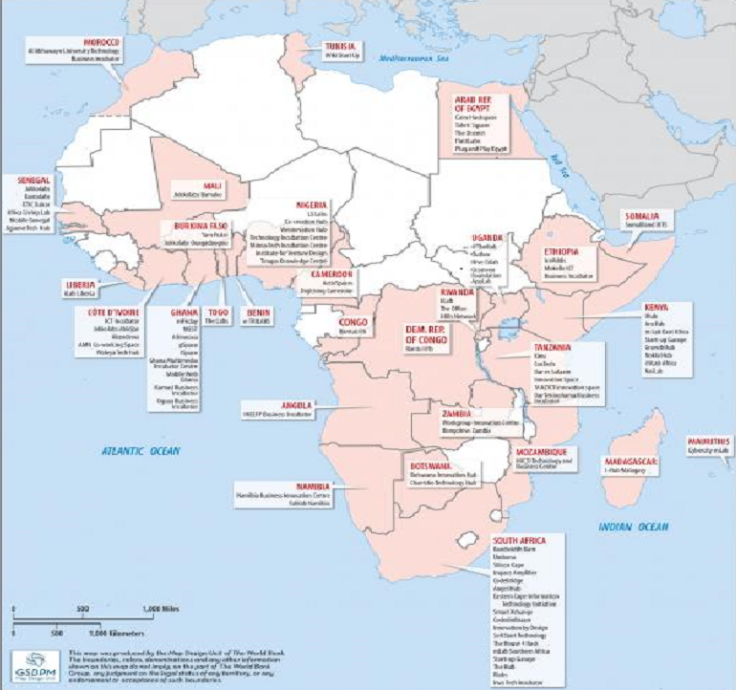From The “Silicon Cape” To The “Silicon Savannah,” African Tech Hubs Are Booming

New research shows incredible growth in tech hubs around Africa. These support centers for app developers, hackers and entrepreneurs are just part of a massive technological renaissance in the region, where the population has “leapfrogged” into the mobile age. Millions of users are now using technology created locally, keeping money in Africa, where so many other sectors simply send profits abroad.
“One of the key features of the African digital renaissance is that it is increasingly homegrown,” wrote World Bank policy specialist Tim Kelly in a blog post this week.
“In other sectors of the African economy, such as mining or agribusiness, much of the know-how is imported and the wealth extracted,” Kelly wrote.
Nearly two-thirds of households in sub-Saharan Africa have at least one cell phone, a rate that’s been increasing by an average of five percent every year, according to the results of a Gallup poll released on Thursday. The GSMA forecasts that there will be 346 million mobile users in the region by 2017.
Meanwhile, less than 2 percent of households in the countries surveyed have a traditional landline. This technological “leapfrog” is the driving force behind this region’s most exciting economic growth assets: tech hubs.
In a joint project for the Botswana Innovation Hub, World Bank researchers collaborated with startups in Kenya and Zambia to create a crowdsourced map of tech hubs in Africa, seen below. They discovered 90 tech hubs around the continent. More than half of the countries had at least one.

Country by country, South Africa tops the list, with the number of hubs hitting double-digits. But Ghana, Nigeria, Tanzania, Kenya and Senegal are giving them a run for their money.
For instance, the Kenya-based *iHub boasts that more than 150 companies can trace their roots back to their Nairobi offices.
“This space is a tech-community facility with a focus on young entrepreneurs, web and mobile phone programmers, designers and researchers,” reads their website, which also lists job openings for software engineers and mobile app developers.
Nigeria’s Co-Creation Hub provides “pre-incubation services” which is a “bouquet of support activities including advice, training, mentorship and access to funding through our network of local and international partners,” according to their website.
The list goes on. These hubs can range from fully-fledged permanent facilities with funding access to small, focused groups of hackers and entrepreneurs.
But the hubs themselves aren’t the whole story. Some tend to rise and fall quickly, especially when they’re just a small informal collection of hackers and developers. But the lasting impression is the companies that stem from them.
“A high failure rate is an inevitable consequence of innovation, and the testing of ideas,” wrote Kelly, but with the caveat that “in the longer term, it is the companies that tech hubs give birth to that will be the lasting legacy.”
He also wrote that more governments have become involved in funding these projects, recognizing the sector’s potential for growth, sustainability and profits that stay at home. Last year, Kenyan government officials announced plans to develop tech-innovation hubs in all 47 of its countries.
In its private-sector outlook for the next three years, the African Development Bank touted the tech sector as one of many important local industries that will promote more skilled workers and fuel the region’s development. “It is African business that will create African jobs, by training and using African talent,” reads the report.
© Copyright IBTimes 2024. All rights reserved.





















